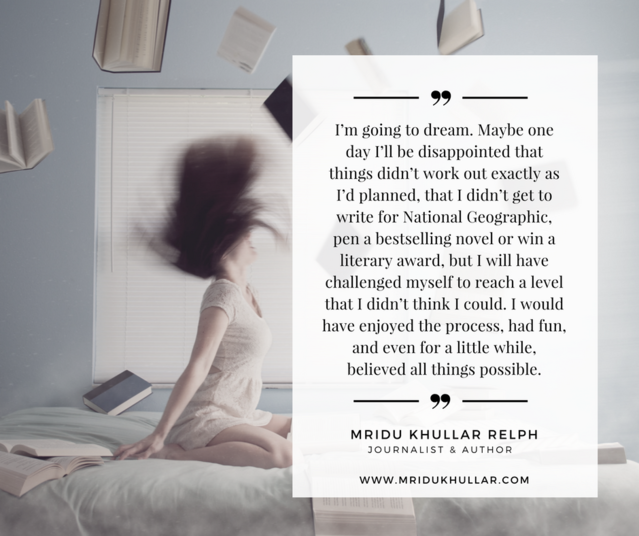Dreaming
Don't Let Them Kill Your Dreams
Why does everyone try to dissuade you from expressing your true desires?
Posted February 27, 2017

The amount of skepticism in the writing and publishing industry is, to me, unsettling. When you dream big dreams, say of becoming a New York Times bestselling author or winning the Man Booker prize, more experienced writers practically jump up to tell you how unlikely it is.
Of course it's unlikely. That's why it's a big dream.
Why are we, as a culture, so afraid of disappointment? The message I'm constantly getting is that it's better not to dream big than to be disappointed.
Why? What's so bad about disappointment? If anything, it's character-forming, it makes you work harder, and while it may upset you and disillusion you for a while, is it not better than a life lived in fear and avoidance? (Here are some of my favorite ways to keep going when all you want to do is quit.)
An acquaintance, who is also a writer, told me once that the reason she doesn't dream of bestseller lists or literary awards is because she knows that there's a very minute chance of her ever reaching that level of success. Why set yourself up for failure and disappointment, she asked.
And the question I have is: Why not?
I think it's the other way around. We don't reach a level of success that we truly want because we're so afraid of being disappointed. In being practical and aware of the odds and how they stand against us, we daren't even dream. Yet, ask most bestselling authors and prize winners and they will tell you that they secretly always knew they would. They didn't always believe, but they always knew. (Here's some advice on how to believe in yourself as a writer.)
In an online writing group I hang out in, an author wrote a few years ago that his goal was to sell a reasonable 20,000 books. He didn't reach that goal, stopping about a thousand short before the book went out of print. We often fall short of our expectations-- that's human nature. That's why I believe it's essential that we aim high. Don't aim for 20,000 and achieve 19,000. Aim for 50,000 and achieve 40,000. Then keep pushing.
Those goals inspire you, they keep you motivated, they keep going.

I don't expect everyone to have the same personal characteristics that I do, which means that I completely accept that some people are happy selling 10,000 books and not thinking about prizes. But the idea that we should all lower our collective expectations of our creative work is not an idea we should so willingly get behind.
I'm going to dream. Maybe one day I'll be disappointed that things didn't work out exactly as I'd planned, that I didn't get to write for National Geographic, pen a bestselling novel or win a literary award, but I will have challenged myself to reach a level that I didn't think I could. I will have enjoyed the process, had fun, and even for a little while, believed all things possible.
Maybe the crash to reality will hurt. But isn't it worth getting to fly among the stars for a while?
Also...
Want to see a query letter that sold to the New York Times? You can download that (and 20 more) by clicking here.
Or perhaps you’re looking to learn the secrets of a six-figure freelancing income? I asked successful freelancers what they’re doing right and they told me. You can read that report here.


